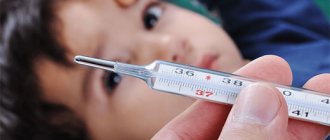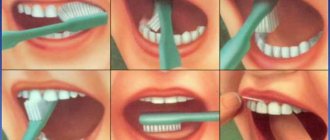An upset stomach is a sign of problems in the digestive tract. An accompanying odor or change in color of stool, or the presence of other phenomena may indicate serious pathological diseases. When an adult and a child have diarrhea with the smell of rotten eggs, this is a signal for immediate treatment.
Causes
Foul-smelling diarrhea can occur for the following reasons:
- unbalanced diet, poor nutrition, resulting in vitamin deficiency, overeating;
- helminthic infestation;
- inflammatory intestinal pathologies (dysbacteriosis, colitis);
- intestinal infection, food poisoning;
- hormonal changes;
- introducing new foods to the baby;
- rotavirus infection;
- ARVI;
- failure to comply with hygiene rules;
- enzyme deficiency (pancreatitis);
- psycho-emotional state;
- putrefactive dyspepsia;
- allergy;
- some medications, in particular after treatment with antibiotics.
Often, defecation with a pungent odor occurs due to severe stress or moving and climate change. This condition does not require treatment - diarrhea will disappear spontaneously in a few days.
Salmonellosis
A child can get an acute intestinal infection from insufficiently processed foods (meat, fish), raw, untreated water. In children, salmonellosis develops acutely and quickly.
The initial symptoms of infection are:
- malaise, fatigue;
- headaches, dizziness;
- vomiting and temperature up to 38-39 °C.
Signs of gastrointestinal disorders:
- a feeling of pain near the navel, in the stomach (the symptom intensifies when pressing on the stomach);
- flatulence;
- strong coating on the tongue, dry mouth;
- vomiting with pieces of food, bile;
- putrid, foamy diarrhea.
Complex therapy is carried out using antibiotics, enzymes and enterosorbents. Treatment aimed at preventing dehydration will also be needed.
Dysentery
An infectious disease that affects the digestive system and colon . Caused by the bacterium Shigella, when decomposed it produces toxins that poison the small organism.
Dysentery progresses rapidly and at the first stage is characterized by signs of intoxication. Gastrointestinal distress is expressed by mild abdominal pain, which subsequently spreads and turns into cramping, acute pain.
There are 3 forms of dysentery:
- Mild - a short-term fever, minor abdominal pain is possible, feces may be accompanied by a putrid odor. Bowel movements are observed up to 10 times a day.
- Average - the child suffers from cramping pain, bowel cleansing in the form of watery stool occurs 10-20 times a day, and blood and mucus are also noted. Babies with this form constantly cry and are irritable. The skin is pale, the tongue has a strong white coating, and the mouth is dry.
- Severe – considered the most dangerous, develops instantly, has complex intoxication of the body, and heart damage.
The temperature is very high, exceeding 40 °C, children suffer from intense headaches, malaise, dizziness, and chills.
The main dangerous symptom of the disease is a constant urge to go to the toilet. The act of defecation is frequent, the stool is watery with the smell of a rotten egg, and even rot.
Dysentery leads to rapid dehydration of the body. In this regard, if diarrhea with an unpleasant odor appears and to prevent the development of this disease, you should immediately consult a specialist.
Enterovirus
The incubation period of infection is 7-10 days, then signs of enterovirus appear:
- temperature changes from 37-39 °C;
- apathy, malaise;
- loss of appetite;
- diarrhea with a rotten egg smell;
- expansion of the submandibular and cervical lymph nodes.
Enterovirus infection should be treated immediately, since the state of health can be aggravated by the inflammatory process of the spinal cord, brain, and cause heart problems.
Therapeutic measures include the consumption of antipyretics, probiotics, replenishing the body with fluid, providing the child with healthy nutrition, and rest.
Diagnosis of the disease
To identify the true cause of hydrogen sulfide belching, a specialist (gastroenterologist, therapist, pediatrician) sends the patient for examination. It includes the following diagnostic measures:
- blood test (general, biochemistry);
- stool occult blood test;
- X-ray of the stomach, esophagus;
- coprogram for determining enzymatic activity and digestive capacity of the stomach;
- gastroduodenoscopy for visual examination of the stomach and duodenum;
- fibrogastroscopy – examination of organs using a probe;
- colonoscopy to evaluate the condition of the intestines using an endoscope;
- irrigoscopy to examine the colon using x-rays and contrast agents;
- manometry of the esophagus to assess its contractility;
- CT scan;
- determination of stomach acidity, study of the juice produced by the stomach.
A complete examination will allow the doctor to make an accurate diagnosis and prescribe effective therapy.
Diagnosis of the disease
The cause of the disease can be determined by undergoing the following procedures:
- Donating blood for biochemical analysis.
- Passing fibrogastroscopy, which allows you to examine the organs of the patient’s gastrointestinal tract using a special probe.
- Thanks to colonoscopy, it is possible to assess the condition of the mucous membranes and identify the presence of inflammatory processes. The procedure provides doctors with information about the diameter of the intestinal lumen, the presence of polyps and tumors.
- An X-ray of the stomach is a procedure that serves for a full examination of its tissues. The stomach is filled with liquid containing barium salts. This is necessary to obtain a high-quality x-ray image. Having received the image, the specialist can determine in which part of the stomach food retention occurs.
- To obtain data on the condition of the colon, the patient is prescribed irrigoscopy. The method allows you to timely identify fistulas and tumors that can form in different parts of the colon.
- Ultrasound - examination of internal organs using ultrasound. The method allows you to determine deviations in the shape of the digestive organs and identify the presence of tumors in the abdominal cavity.
- In case of coprogram, the patient’s fecal contents are carefully studied by specialists. The analysis provides valuable information about the presence of pathogenic microorganisms, particles of incompletely digested food, and the composition of the epithelium of the intestinal mucosa in different areas.
Sour smell of diarrhea
A sour aroma of feces occurs in patients in the postoperative period. This happens after taking antibiotics. To eliminate it, you need to use lactobacilli, which will help improve the intestinal microflora.
Often, diarrhea with a sour smell is caused by inflammation of the small intestine. Sometimes enteritis can be a factor. Along with the unpleasant stench of the liquid symptom, a light-colored stool is observed, which appears up to 8 times a day. A common intestinal infection can cause acid diarrhea.
Features of manifestation
The clinical picture of diarrhea depends largely on what was the cause. Each disease has its own characteristics and characteristic symptoms. For example, loose, yellowish stools appear due to intolerance to certain foods or stress.
For bacterial infection
Salmonella bacteria can be found in dirty water, on the surface of unprocessed food (milk, chicken eggs, meat and fish), and household items (wheels or toys). The source is also domestic and wild animals, which are carriers of bacteria.
Dysentery is caused by Enterobacteriaceae of the genus Shigella, the sources of which are a sick person or a carrier. Children with shigellosis become dangerous to others from the 1st day of illness. Others become infected through the fecal-oral, nutritional, water or household contact routes.
Yersiniosis is an acute bacterial infection that most often affects the gastrointestinal tract due to severe intoxication. You can get sick through contact with animals (various rodents, cattle, cats, dogs), soil or other sick people. There is evidence of the occurrence of the disease after blood transfusion of an infected person.
Cholera is an extremely dangerous quarantine infection, which, before the advent of antibiotics, led to the death of patients, especially children 2-3 years old. Vibrios (bacteria) enter the external environment along with feces (transmitted by the fecal-oral route) - water, soil, food, household items. After reproduction, the microorganism releases toxins in huge quantities, which cause rapidly increasing symptoms.
Differential diagnosis of some diseases accompanied by diarrhea in children.
| Symptom | Source of infection | |||
| Salmonella | Shigella | Vibrio cholerae | Yersinia | |
| Character of the chair | Liquid with a pungent odor, sometimes green in color (the color of swamp mud) | Scanty diarrhea, unformed, with impurities (mucus, blood). Described as "rectal spit" | Large, watery stools that resemble rice water and smell like raw fish | Copious foul-smelling stools of a liquid consistency, may contain mucus or blood |
| Abdominal pain | Moderate, accompanied by cramps, disappears before or with diarrhea | Strong, there may be tenesmus (false urge to defecate) | Not typical | Intense, localized closer to the navel or right lower abdomen |
| Nausea | Eat | May be | Not typical | Eat |
| Vomit | Frequent and profuse in periods before diarrhea | With gastroenterocolitic variant of the disease | Repeated after diarrhea | Repeated |
| Dehydration | Moderate | Not typical | Strong | Moderate |
| Body temperature | Fever for more than 3-5 days | Increases for 2-3 days | Normal or reduced | Within 2-5 days |
Putrid odor of liquid stool
This smelly diarrhea in a child may indicate inflammation of the large intestine. Often, a putrid odor is caused by fermentation processes that appear after eating foods rich in fiber. A person does not feel severe pain or flatulence in the stomach, but the stool stinks.
The bowel movements smell rotten due to electrolytes. Often this smell is noted in the absence of food containing fiber and protein. Bowel movements return to normal quite quickly.
In a newborn baby, smelly stool may occur due to poor nutrition of the mother. Eating fatty foods, dairy products, strawberries, sausages, soda, cabbage - all this leads to upset bowel movements in the baby.
Folk remedies
The smell of rotten eggs in the mouth can be combated using traditional medicine. Time-tested remedies eliminate abdominal discomfort, flatulence, belching and loose bowel movements. The most effective methods of treatment:
- Take a daily infusion of dill seeds, peppermint, and yarrow leaves. The mixture should be brewed and left for half an hour. Helps get rid of air from the esophagus and liquid feces.
- St. John's wort is poured with boiling water, infused and drunk 1 tablespoon before meals. The herb normalizes digestion and eliminates the inflammatory process.
First aid
If a child has diarrhea, the previous menu should be excluded until the stool returns to normal. Remove fatty, fried foods, dairy products, vegetables, and raw fruits from your diet. It is allowed to use activated carbon for children, based on 1 tablet per 10 kg of weight. If diarrhea occurs in a baby, feeding should not be stopped.
Before the doctor arrives, you should prevent dehydration. The child can be given simple purified water and dried fruit compote.
An excellent remedy in the fight against diarrhea will be the pharmaceutical drug Regidron. The solution is diluted with liquid in a 1:1 ratio and consumed throughout the day in small doses.
Diet
To stabilize the passage of hard feces, take dairy-free porridges, stewed vegetable dishes, and pureed soups several times a day. It is not recommended to eat fatty meat, fish, cottage cheese, or drink milk. It is important to exclude from the diet any foods that irritate the mucous membrane of the digestive tract and increase gas formation.
Proper drinking will allow you to quickly get on the path to recovery. It is important to drink wild berry jelly in small portions several times a day. It has enveloping properties and improves well-being. Blueberry compote and rice water are good for digestive disorders.
Treatment
Before prescribing treatment, the doctor will send the child for a stool and urine test. Then he will prescribe a comprehensive treatment, which includes the following drugs:
- Smecta, Enterosgel - they are primarily prescribed, they help eliminate intoxication.
- Trisol, Regidron - help replenish the body with minerals and prevent dehydration.
- Loperamide, Nifuroxazide are antidiarrheal drugs that quickly eliminate diarrhea.
- Espumisan - will relieve the baby from gases and colic.
- No-Shpa, Papaverine - relieve spasms and pain.
When an infection is detected during diagnosis, the most complex complex drug treatment is used.
Alternative treatment, which is also used as prescribed by a doctor, will also effectively help relieve diarrhea. For these purposes, starch solution, rice broth, a composition of sage, caraway, gray alder and many other means are used.
What causes the trouble?
Most often, gases with the smell of rotten eggs are formed when digestion processes in the gastrointestinal tract slow down. As a result, food stagnates and begins to ferment. Subsequently, hydrogen sulfide, a gaseous substance, is released in large quantities. This is the source of such belching. This phenomenon is possible in both adults and children. Slow digestion and bloating are common during pregnancy due to the pressure of the enlarging uterus on the internal organs.
Belching air with a rotten egg smell can also occur after eating certain foods. Protein foods, fast food, fatty and canned foods, melons and carbonated drinks cause such bloating in many people.
Belching air with a rotten egg smell can also occur after eating fast food.
The following are other reasons why gases that smell like hydrogen sulfide are formed:
- Binge eating. A stomach overloaded with food prevents the entrance sphincter from closing. Because of this, air begins to belch with the smell of a rotten egg.
- Difficult bile secretion. As a result, the digestive process is disrupted, fats are not completely digested, and fermentation begins.
- Inflammation of the inner linings of the stomach and intestines.
- Impaired enzyme production due to chronic inflammatory disease of the pancreas.
- Stopped or weakened gastric motor function.
- Excessive growth of intestinal flora. This condition is possible with lactose, fructose or gluten intolerance.
The situation that causes concern is when belching rotten eggs is accompanied by other unpleasant symptoms indicating a serious malfunction of the stomach or intestines. These include flatulence, diarrhea, bloating, loss of appetite and weight. This condition in an adult or child may have reasons such as:
- Food poisoning. Belching air with the smell of rotten eggs and diarrhea are the most common manifestations of this condition in an adult or child. Fever, chills, abdominal pain, and vomiting are also possible.
- Long-term treatment with antibiotics often leads to an imbalance in the intestinal microflora. The result of this is increased gas formation, accompanied by diarrhea and abdominal pain.
- Giardia infection. These parasites are ingested by consuming contaminated food or water. They are the cause of the development of diseases such as colitis. Its symptoms, in addition to belching rotten eggs, are sharp pain in the lower abdomen and diarrhea with mucus.
- Side effects of various drugs.
- Infection with the Helicobacter bacteria is the cause of gastritis and ulcers. These diseases are often accompanied by flatulence, stool upset, and hydrogen sulfide belching.
- Crohn's disease. With this serious illness, not only belching with a putrid odor is troubling, but also diarrhea, inflammation of the anus, abdominal pain, severe weight loss and anemia. Treatment of this disease in advanced form involves removal of part of the intestine.
Crohn's disease can cause flatulence.
Considering how different the causes of stool disorders and increased gas formation can be, it is recommended to consult a specialist. He will identify the exact source of the problem and prescribe the appropriate treatment.
Prevention
Diarrhea in a baby is a dangerous and unpleasant manifestation. To avoid such a symptom, you need to do the following as a preventive measure:
- monitor hand hygiene, wash them after every trip to the toilet or outside;
- fruits and vegetables must be clean;
- give products exclusively fresh;
- Meat, fish, eggs are well processed.
Diarrhea provoked by various factors usually indicates the development of some kind of infectious pathology, the treatment of which should be carried out as early as possible. If your stool smells like rotten eggs, this should never be ignored. Providing timely assistance to a child will protect him from adverse consequences.
We recommend: Why does diarrhea occur with chickenpox and how to treat it?
How to determine dehydration and what to do?
Dehydration is a dangerous condition that threatens the health and life of a child. Every parent should know how to recognize dehydration and what steps to take to prevent it.
Dehydration develops quickly and goes through 3 stages:
- I - compensated form, which develops with fluid loss of no more than 5% of the child’s weight. Characterized by dry mucous membranes and a feeling of thirst.
- II is a subcompensated form of dehydration, which can be described as a loss of 5 to 10% of the baby’s weight. At this stage, children are capricious and restless. The mucous membranes are distinctly dry, the skin is flabby and also dry. In infants, the fontanel recedes. Urination is rare, urine is dark.
- III - decompensated. Occurs when you lose more than 10% of body weight. The signs of the subcompensated form include cyanosis of the nasolabial triangle, limbs, and pallor of the skin throughout the body. There is no urination, shortness of breath, tachycardia, and often convulsions appear.
At stage II, it is necessary to give the child water-salt solutions, such as Regidron. You can also prepare a medicinal solution at home - dilute 20 g of sugar, 1 tsp in 1 liter of boiled water. salt and 0.5 tsp. soda
Rotten egg burping: what to do if it’s abnormal?
If you have such a problem, it is advisable to immediately contact a specialist. In such situations, the doctor is obliged to prescribe a series of laboratory tests that will help identify the exact cause of this pathology. For self-therapy, before going to the hospital, the patient is recommended to take activated charcoal. To do this, take five tablets, crush them with a spoon and dissolve them in 1/2 cup of warm water (boiled). You can also take the drug "Smecta" according to the instructions. Such measures will help you quickly cleanse the gastrointestinal tract of putrefactive food residues, which will significantly alleviate your condition.











